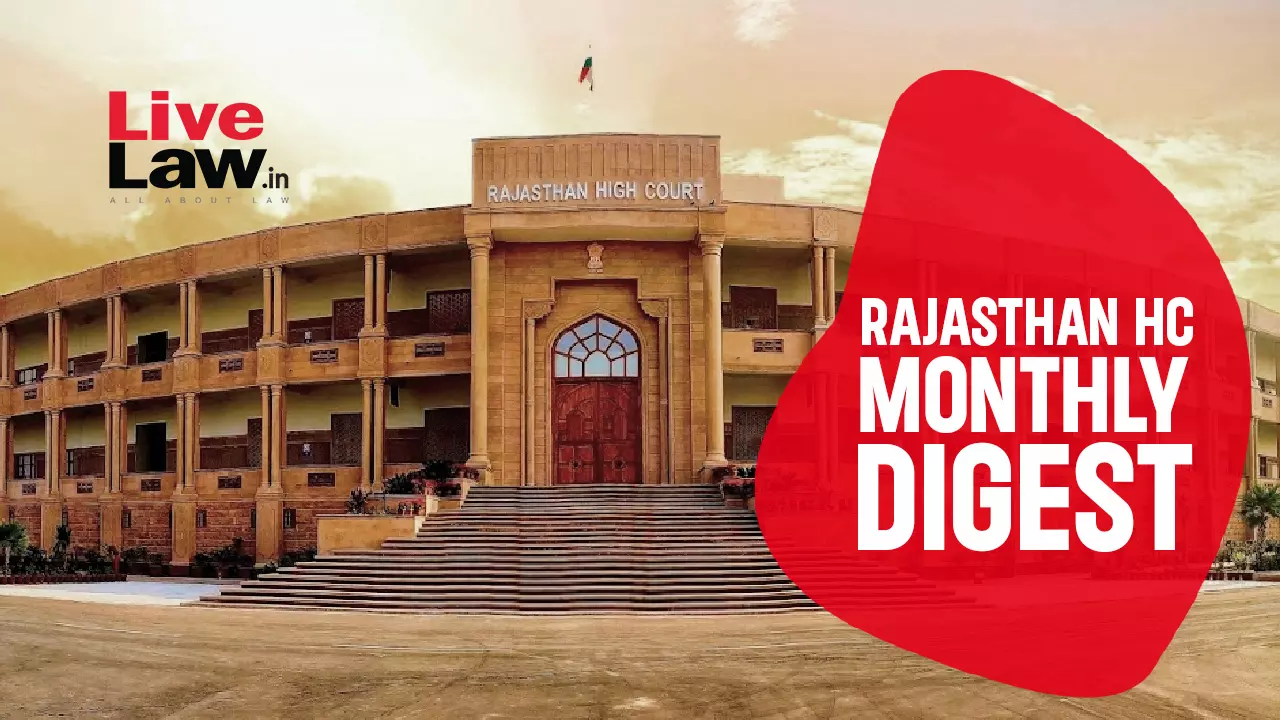- Home
- /
- High Courts
- /
- Rajasthan High Court
- /
- Rajasthan High Court Monthly...
Rajasthan High Court Monthly Digest: September 2024
Nupur Agrawal
8 Oct 2024 10:18 AM IST
Citations: 2024 LiveLaw (Raj) 233 To 2024 LiveLaw (Raj) 282NOMINAL INDEXKusum Lata v the State of Rajasthan 2024 LiveLaw (Raj) 233Virendra Singh & Ors. v Rajasthan State Road Transport Corporation & Ors. 2024 LiveLaw (Raj) 234Babu Lal v State of Rajasthan 2024 LiveLaw (Raj) 235Poonam v State of Rajasthan & Ors. 2024 LiveLaw (Raj) 236Ganesh & Ors. v State of Rajasthan 2024...
Next Story



